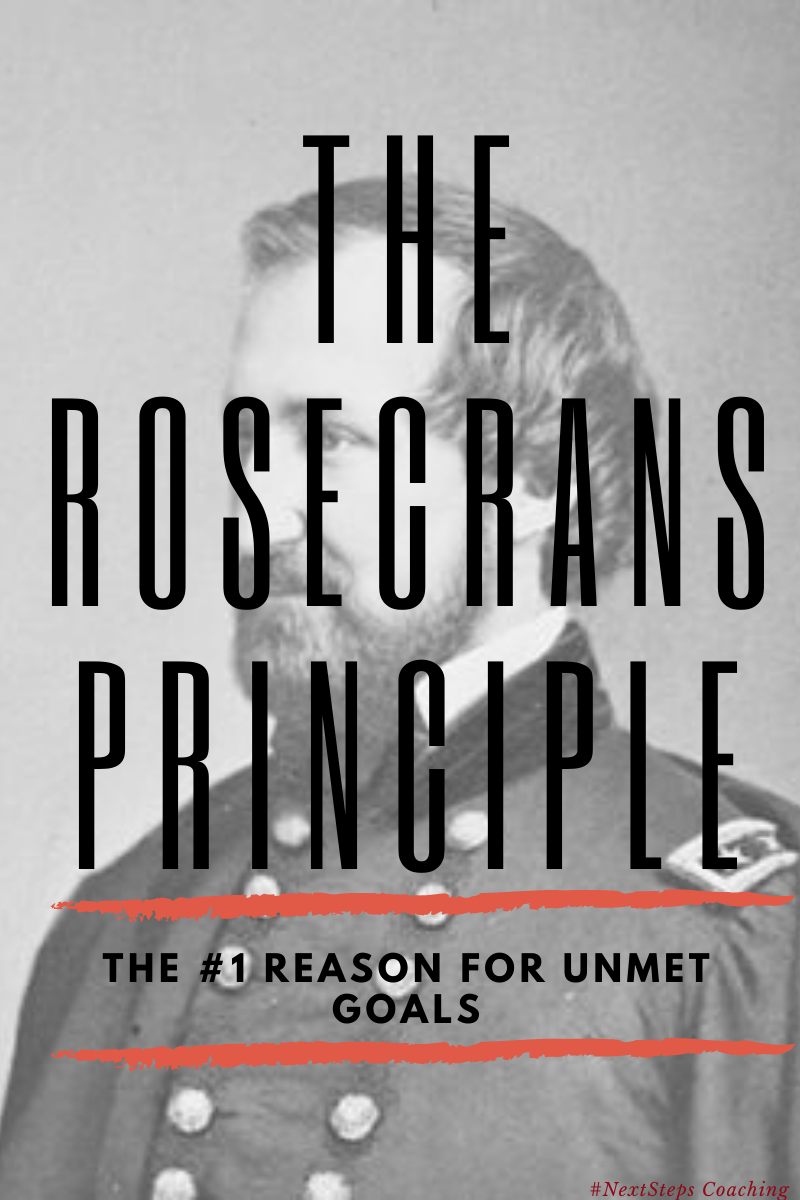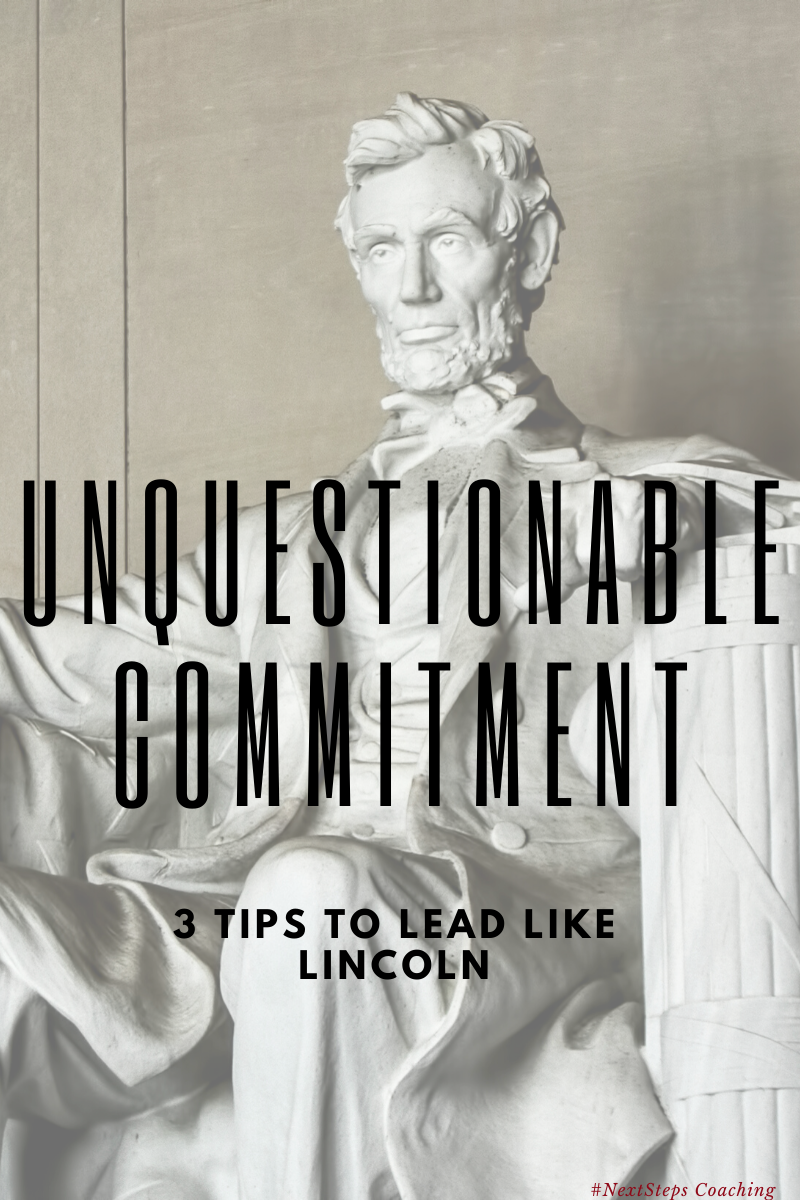
One of the greatest contributing factors to unmet goals and failure is what I call, “The Rosecrans Principle.”
William S. Rosecrans
William S. Rosecrans was a major general during the American Civil War. A highly decorated strategist, he often failed to translate an idea into action.
He’s the one that gave me the idea for The Rosecrans Principle.
His superior, Ulysses S. Grant, when writing in his personal memoirs after the war, summed up one meeting this way:
We held a brief interview, in which he described very clearly the situation at Chattanooga, and made some excellent suggestions as to what should be done. My only wonder was that he had not carried them out. (emphasis mine)
What was Rosecrans’ problem? He had a lot of great ideas but failed to take the appropriate action. 
As an entrepreneur, business owner, high-achiever, parent, spouse, child, community member, or any other title you carry …. can you relate?
We know we should get out that marketing email, but it’s getting late, we’re a little tired, and it’s easy to push it to another day.
Another scenario: It’s time for some sales calls…except the kids kept you up, you’re hungry, and don’t feel like being rejected should someone say ‘no.’ What do you do? Will you push through anyway, or suffer from The Rosecrans Principle?
Throughout our day, we are confronted with a variety of scenarios, and our outlook determines our destination.
Do we see obstacles or opportunities?
Avoiding the Pitfall
Avoiding the pitfall of The Rosecrans Principle is obvious: take action.
MASSIVE ACTION.
But you knew that, didn’t you?
The problem is not that we don’t know to take action, it’s that we’re scared to.
General Rosecrans himself knew this.
We know this.
So, how do we do it?
In order to push through fear, take massive action, and avoid The Rosecrans Principle, only one thing is required.
Answer “why” not just “how.”
Often, our problem lies with only trying to answer the ‘how’ based questions.
How will we get it all done? What’s next? How will we proceed?
The problem, is that we never answer the ‘why’ based questions?
Why is this important? What’s at stake if I don’t succeed?
As high-achievers, we care a lot about the ‘how.’ We want to know what’s next, and how we can squeeze more productivity out of our time.
But with time, that breeds fear. We fail behind, fail to meet a key metric, become fearful, and everything snowballs out of control.
We have great ideas and can spend a lot of time, like General Rosecrans, coming up with the brilliant plan of attack that will help us.
But then, like Rosecrans himself, see the list of to-do items and feel overwhelmed. Fearful. Burdened.
To counter this, take massive action now just on the how but the why.
That’s where Rosecrans failed. He came up with plans, but without knowing why they were important, he never had the courage to act.
As a result, he fell out of favor with Grant and the Union and slowly faded to obscurity.
Don’t be like Rosecrans.
Focus on the how and the why.
Make lofty plans.
Set enormous goals.
Take massive action.

